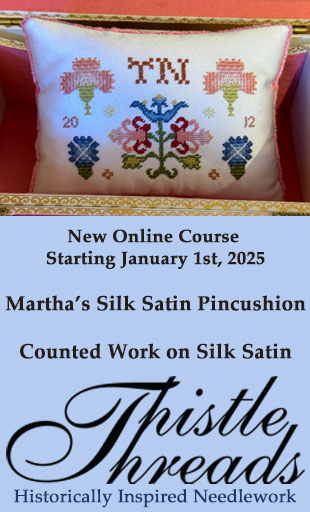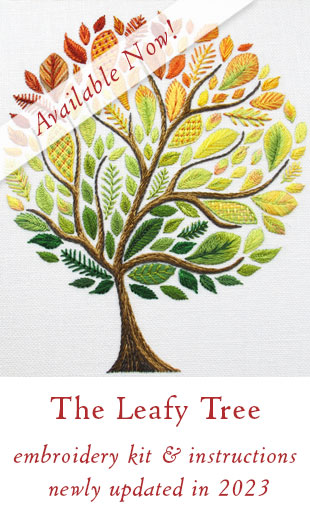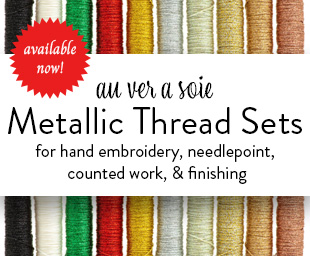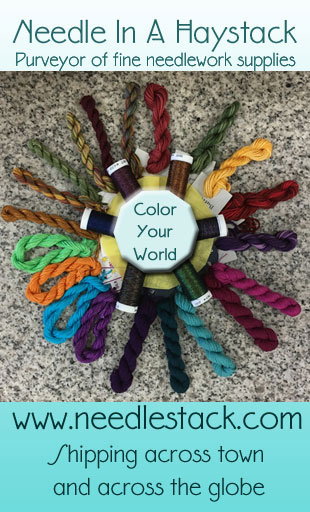Good question! Don’t be intimidated by embroidering. After all, if you’re taking it up for the first time, it’s because you want to do it – so why not try to teach yourself first, before investing in group classes? You know your own interests best, so follow them, and if you run into a hitch, or if you want to go further with formal instruction, then join a group.
Where to start? You need one very good book that teaches basic stitches. The A-Z Series books put out by Country Bumpkin (they do Inspirations Magazine out of Australia) are excellent books for step-by-step instruction. They have a general one: The A-Z of Embroidery Stitches, which is really good. They’re packed with step by step photos. You can pick up the less-obscure titles at Amazon, for a lot less than buying them straight from the company or from retail shops. You can usually even find them used on Amazon, for even less. Even if you save just a buck or two – that’s floss!
Start with a good book, then. You’ll probably want some fabric – a tightly woven, smooth fabric such as a high-thread count muslin would work, and it would be relatively inexpensive. If you’re the type that wants to launch into something fine, purchase a medium-weight linen (48 thread count or higher for all-purpose embroidery). Then you’ll want a needle, and a hoop. More about these later – but for now, try a #3 crewel needle, and a plastic “Susan Bates” brand hoop (8 or 10 inches).
Why not start with a sampler of surface embroidery stitches? Draw it yourself – simple lines and curves, a row of lazy daisy stitches and perhaps some buttonhole wheels – and your name and the date in outline stitch. It’s simple! Draw it on graph paper, then trace it onto your fabric using a one-step transfer pen (EZ Marking Pens with a fine tip – purchase them at Hobby Lobby, or on-line at Joann’s), and voila! You’ve got your design.
If you don’t have floss, head out to a favorite hobby store (Hobby Lobby, for example), and get a nice selection of about 10 colors of DMC. Open your book, and start stitching.
I’ll put up an example that I use for a youth class, so you can see what I mean, and I’ll add some stitching ideas and color ideas for you…. keep an eye out!
See you soon!







I am a self-taught embroiderer (30+ years), but about 6 years ago I discovered the Embroiderers’ Guild of America (EGA) and joined a local chapter. The advantages of being in a group (especially for a beginner) is that if you get stuck there’s probably someone who can help you. Also, I think this gives one the potential for getting better faster. You are also exposed to other facets of the needlework community such as seminars, classes, etc. I certainly wouldn’t discourage anyone from learning on their own, but groups can be a good thing.